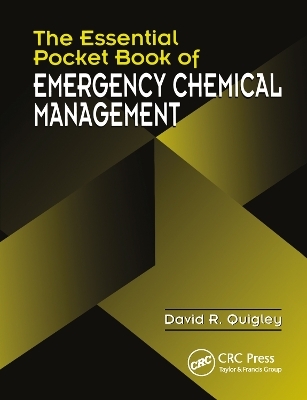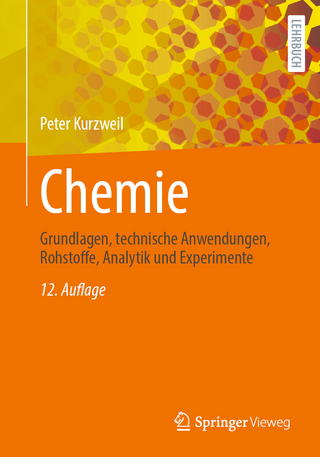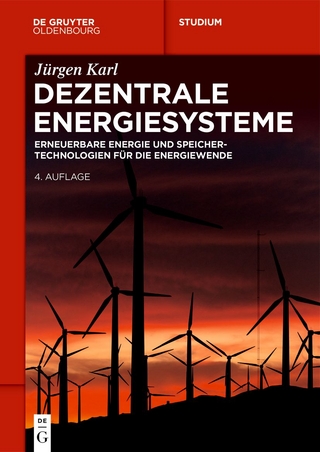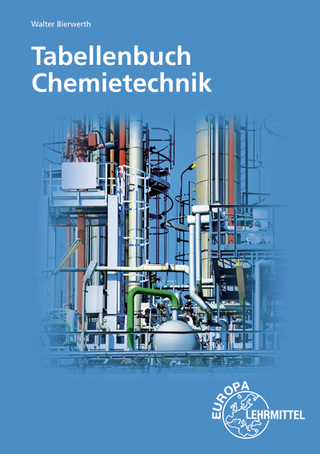
The Essential Pocket Book of Emergency Chemical Management
Seiten
2020
CRC Press (Verlag)
978-1-138-42268-1 (ISBN)
CRC Press (Verlag)
978-1-138-42268-1 (ISBN)
Contains information first responders need to manage a chemical spill or leak. This book lists more than 600 chemicals and chemical compounds and their specifications.
Save time - and maybe a life - with The Essential Pocket Book of Emergency Chemical Management. This detailed, no-nonsense guide contains all the information first responders need to quickly and effectively manage a chemical spill or leak. It efficiently presents information in an easy-to-use table format throughout two sections. The first section lists more than 600 chemicals and chemical compounds and their specifications as follows:
The common chemical name.
The DOT number - a standardized number issued by the U.S. Department of Transportation and posted on the outside of the carrier, identifying the cargo.
CAS number - the substance's Chemical Abstract Services number, which accurately identifies a substance when several pseudonyms are present.
Form - a brief description of the substance's appearance.
NFPA code - a three-digit code representing health, flammability and reactivity hazards associated with the substance as issued by the National Fire Protection Association.
Vapor pressure - a relative ranking of how much vapor will be given off at room temperature.
Water solubility - an indication of how soluble the substance is in water.
PPE (Proper Protective Equipment) - a listing of the level of protection recommended for a moderate-size spill.
Incompatibilities - a listing of those classes of chemical compounds that may react with the listed substance.
Spill - recommended procedures for cleaning up spills.
Decon - recommended procedures to decontaminate spill areas.
Fire - recommended fire fighting agents and methods.
First Aid - health issues important to first responders.
Special - important issues associated with the specific chemical.
The second section of this valuable book contains isolation distances and reporting information for each chemical. It is organized as follows:
D
Save time - and maybe a life - with The Essential Pocket Book of Emergency Chemical Management. This detailed, no-nonsense guide contains all the information first responders need to quickly and effectively manage a chemical spill or leak. It efficiently presents information in an easy-to-use table format throughout two sections. The first section lists more than 600 chemicals and chemical compounds and their specifications as follows:
The common chemical name.
The DOT number - a standardized number issued by the U.S. Department of Transportation and posted on the outside of the carrier, identifying the cargo.
CAS number - the substance's Chemical Abstract Services number, which accurately identifies a substance when several pseudonyms are present.
Form - a brief description of the substance's appearance.
NFPA code - a three-digit code representing health, flammability and reactivity hazards associated with the substance as issued by the National Fire Protection Association.
Vapor pressure - a relative ranking of how much vapor will be given off at room temperature.
Water solubility - an indication of how soluble the substance is in water.
PPE (Proper Protective Equipment) - a listing of the level of protection recommended for a moderate-size spill.
Incompatibilities - a listing of those classes of chemical compounds that may react with the listed substance.
Spill - recommended procedures for cleaning up spills.
Decon - recommended procedures to decontaminate spill areas.
Fire - recommended fire fighting agents and methods.
First Aid - health issues important to first responders.
Special - important issues associated with the specific chemical.
The second section of this valuable book contains isolation distances and reporting information for each chemical. It is organized as follows:
D
David R. Quigley, Ph.D., is the founder of D.R. Quigley and Associates, a company which specializes in chemical safety and emergency response. He is also an Advisory Scientist at the Idaho National Engineering Laboratory and an Adjunct Professor at both the University of Idaho and Idaho State University. Dr. Quigley received his ACS Certified B
Section One General Chemical Information, Section Two Isolation Distances and Reporting Information, Fire Fighting Codes, First Aid Codes, Special Hazard Codes, Spill Code, Definitions and Abbreviations, Index of DOT Numbers
| Erscheinungsdatum | 29.07.2021 |
|---|---|
| Verlagsort | London |
| Sprache | englisch |
| Maße | 115 x 150 mm |
| Gewicht | 453 g |
| Themenwelt | Naturwissenschaften ► Chemie ► Technische Chemie |
| Sozialwissenschaften ► Politik / Verwaltung ► Europäische / Internationale Politik | |
| Technik ► Bauwesen | |
| Technik ► Umwelttechnik / Biotechnologie | |
| ISBN-10 | 1-138-42268-1 / 1138422681 |
| ISBN-13 | 978-1-138-42268-1 / 9781138422681 |
| Zustand | Neuware |
| Haben Sie eine Frage zum Produkt? |
Mehr entdecken
aus dem Bereich
aus dem Bereich
Grundlagen, technische Anwendungen, Rohstoffe, Analytik und …
Buch | Softcover (2023)
Springer Vieweg (Verlag)
39,99 €
erneuerbare Energien und Speichertechnologien für die Energiewende
Buch | Softcover (2023)
De Gruyter Oldenbourg (Verlag)
69,95 €
Daten, Formeln, Normen, vergleichende Betrachtungen
Buch | Softcover (2024)
Europa-Lehrmittel (Verlag)
38,90 €


